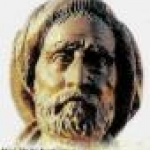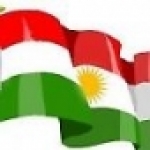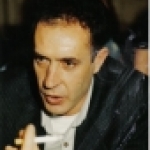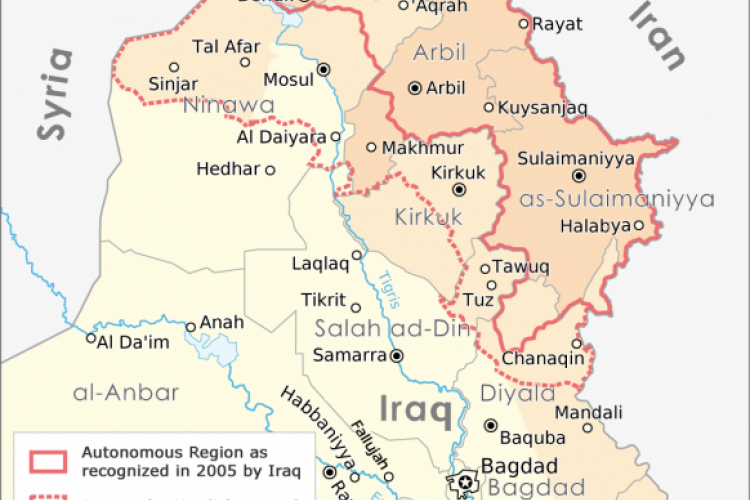Prime Minister Recep Tayyip Erdogan was once headed for hero status among Turkey’s Kurdish minority. Now, he’ll settle for being the least bad bet.
Erdogan, who won record majorities in his past two parliamentary elections, is seeking support for constitutional amendments in a Sept. 12 referendum. Most polls show the contest is too close to call. The votes of Kurds -- who welcomed Erdogan’s promises of wider rights and an end to a 26-year war against separatist militants, and then criticized him for not delivering -- may swing the result.
The changes include giving political leaders more influence over courts and allowing the civil trial of army officers, who are blamed by Kurds for civilian deaths in the war and for abuses after a 1980 military coup. Rejection would weaken a government that has presided over economic growth of 5 percent a year since 2003 and must run for re-election by July.
“There’s absolutely nothing directly benefitting Kurds in this package, but today’s judiciary system and military are enemies of the Kurds,” said Ozer Sencar, head of MetroPOLL Strategic and Social Research in Ankara. “Those who were tortured or suffered from the 1980 coup, they want revenge, because soldiers did this to them.”
A nationwide poll last month by research company A&G found 45 percent planning to vote “yes” and 44 percent “no,” with 11 percent undecided, according to an Aksam newspaper report on Sept. 1 that didn’t cite a margin of error. The study surveyed 2,405 people.
Victory may signal that Erdogan is still seen as the best hope for stability and democratization, even by Kurds who aren’t happy with his record.
Kurdish Dead
As many as 40,000 people, mostly Kurds, have died and as many as 1 million have been driven from their homes since 1984 in the war between Turkey’s army and the autonomy-seeking Kurdistan Workers’ Party, or PKK. It is listed as a terrorist group by the U.S. and the European Union. Kurds make up as much as one-fifth of Turkey’s 73-million population.
Successive governments enforced harsh restrictions against speaking the Kurdish language. Amnesty International criticized Turkey in June for prosecuting thousands of young people, mostly Kurds, under anti-terror legislation after they took part in demonstrations. The next month, Erdogan’s government pushed through a law to prevent the prosecution of minors.
The constitution vote is complicated for Kurds by a boycott call from the leading Kurdish political party.
Not Consulted
The Peace and Democracy Party, or BDP, demands a wholesale revision of the constitution and objects to not having been consulted on the proposed changes. It also blames Erdogan’s government for backpedaling on promises to widen Kurdish rights such as broadcasting and teaching in their native language, and to seek a peaceful end to the Kurdish war.
The group has plastered Diyarbakir, a Kurdish-majority city of 800,000 on the Tigris river where it won in March 2009 municipal elections, with boycott posters and billboards that compete with Erdogan’s own “Yes” posters. “We don’t want a Kurdless constitution -- We’re not going to the polls on Sept. 12,” many read.
A poll conducted by Erdogan’s party predicts that half of the BDP’s supporters will defy the boycott and vote, helping the amendments pass with 55 percent nationwide support, Bugun newspaper reported yesterday.
Individual opinions differ.
Party Influence
“There are quite a few articles in the constitutional changes that are against the military,” said Nimet Narin, a restaurant owner in Diyarbakir. He said his father was killed when the army set fire to the family’s hotel in 1992 in Kulp. “If our party would allow us to be independent, we would say definitely ‘yes.’ But we have a political party, and we rely on them.”
Erdogan visited Diyarbakir on Sept. 3 and vowed to tear down a jail that has become a symbol of repression of Kurds. Thousands were detained and tortured there after the 1980 coup.
“I want to remind my dear brothers in the east and southeast that we’ve made the largest investments here in the history of the republic,” the premier told a crowd of thousands. “We see the boycott as an anti-democratic approach. There’s a yes or a no, there’s no other choice.”
Kurdish business leaders, who have profited from economic growth under Erdogan, have defied the BDP by backing the constitutional changes, saying his government can do more for the Kurds if it stays in power.
Economic Rebound
The economy was growing at almost 7 percent a year before the global crisis hit in 2008, and it is recovering lost output this year. First-quarter growth was an annual 11.7 percent, the fastest in the Group of 20 industrialized countries bar China. The benchmark ISE-100 stock index has jumped 35 percent in the past 12 months, almost double the gain of the benchmark MSCI Emerging Markets Index.
Even the Kurdish southeast, Turkey’s poorest region, has benefitted. Istanbul-based companies such as Koc Holding AS, which built a tomato paste plant in the southeastern province of Sanliurfa, and Turkcell Iletisim Hizmetleri AS, which opened a call center in Diyarbakir in 2008, have invested there.
“After a ‘yes,’ the government will be strengthened and can act more comfortably,” including a revival of Erdogan’s initiative to end the conflict with the PKK, said Galip Ensarioglu, president of the Diyarbakir Chamber of Commerce and a leader of the influential Kurdish Ensarioglu tribe. “If there’s a ‘no,’ it strengthens those who don’t want change.”
‘No’ Campaign
The two main national opposition parties, the Republican People’s Party and the Nationalist Action Party, are campaigning for a “no” and have also opposed wider Kurdish rights.
Leaders of the Kurdish party argue that Erdogan hasn’t done enough to deserve Kurdish support. Nijat Yaruk, the BDP chairman for Diyarbakir, said he hasn’t bothered printing business cards because precedent suggests he may not be in the job for long.
“In two years, seven chairmen who sat in this chair have been put in prison,” he said. “That’s why it’s not so logical to have cards.”
Agriculture Minister Mehdi Eker, an ethnic Kurd who campaigned in the region for a week for a “yes” vote, said Kurds should back the proposals.
“You may say ‘I’m not satisfied,’ but this does not mean the whole package is not good,” Eker said over tea after a meal and prayer. “If we get a yes vote, the message will be, more change.”
To contact the reporter on this story: Benjamin Harvey in Ankara [email protected]
Re: http://www.bloomberg.com/news/2010-09-06/erdogan-faces-close-call-in-re…







